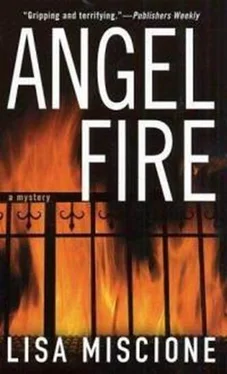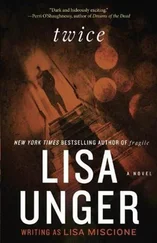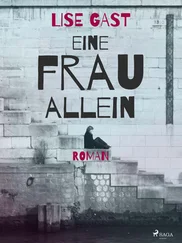“Sad story. What about it?’’
“Is there an ongoing investigation?’’
Morrow paused for what she assumed was his attempt at dramatic effect. “Ms. Strong, you are aware that the mutilation and death of a dog, while tragic, does not warrant a murder investigation.’’
On the other end of the line, Lydia was practically salivating. She was tapping her pen rapidly against the pad on her desk. She could smell it. She could taste the blood in her mouth. “I am quite aware of that. I just thought, in connection with some of the other peculiar criminal activity in the area – for example, the surgical-supply warehouse or the missing-persons cases you have open – there might be some connections to be explored.’’
“I see. Thank you for your input, Ms. Strong, but I fail to see how this concerns you.’’ He was, she knew, attempting to sound cold, intimidating, but there was an almost imperceptible quaver to his voice that told her he was hiding something.
“Just consider me an involved citizen.’’
“With an overactive imagination.’’
“That’s what you said the last time we spoke, Chief. Do I have to remind you how wrong you were?’’
“There’s nothing here, Ms. Strong. Nothing at all.’’
“Are there photos of the location where the dog was found?’’ she pressed.
“No.’’
“Okay, we can play it this way if you want to,’’ she said, her voice level and soft, “but we’ll be talking again soon. Sooner than you’d like, I bet.’’
“I’ll look forward to it. Really.’’
As Simon Morrow slammed down the phone he issued a string of expletives. Continuing to curse, he rose quickly, knocking over a cold, black cup of coffee.
He barely saved the photos of Lucky’s mutilated body that lay spread across his desk.
Her run the night before had soothed Lydia’s restlessness, but only temporarily. But morning had turned to afternoon and the afternoon to early evening as Lydia had sat at her computer, and her focus was beginning to drift.
She began to think she would call Jeffrey and ask what he thought about the articles and their possible implications. But then she began to think of other things. Memories of her mother began to sear her, and her restlessness began to feel physically uncomfortable. She shut down the computer and got up to stretch. The house was silent and lonely. She had to get out.
She walked to her bedroom and entered the walk-in closet, started flipping through the rows of designer clothes that she collected with zeal.
When she let the impulse take her, it took her to extremes. Sometimes it would come on her hours or days before she acted upon it. Her conscious mind would push it away until it could no longer be ignored. Even now, as she pulled the sleeveless black Armani dress over her lean, tightly muscled body and slipped her slender feet into high-heeled Gucci black leather pumps, she barely acknowledged what she was about to do. She wrapped her lustrous blue-black hair into a loose French twist and held it in place with two red lacquer chopsticks. She applied no makeup to her pale skin except a deep-red shade of MAC lipstick, to accentuate her stormy gray eyes. It wasn’t that she didn’t take responsibility for herself and her actions. It was only that she had about as much control as a junkie looking for a fix. All she was aware of as she headed out the door was a sense of relief that she wouldn’t be spending the night alone.
In big cities like New York, the game was more dangerous, the quarry more unpredictable, more plentiful. In Santa Fe, she would usually find herself in the hotel bar of the Eldorado, maybe in a restaurant off the square, possibly a dive bar by the side of the highway. It didn’t matter.
“May I help you, miss?’’ She was greeted by the smiling maitre d’, a young man who looked too young to be wearing a tuxedo.
“Just a drink. I’ll sit at the bar.’’
The bar was more crowded than usual. Though the permanent residents of Santa Fe had opposed the construction of the Eldorado, the luxury hotel was packed with tourists year-round. Opera season, ski season, Indian Market, the art galleries on Canyon Road drew the country’s idle rich. It had proved to be good hunting grounds the last time she had visited.
She spotted him at the end of the slick black bar. He was young, mid-twenties; his thick, dark hair was pulled into a ponytail at the base of his skull. He exuded wealth, his black cashmere sweater draping elegantly off taut pecs and strong shoulders. His Rolex glittered in the dim track-lighting above him. A martini, half-finished, sat before him. He traced the edge of the glass with a gentle fingertip. Melancholy, contemplative, definitely alone. She sat down across from him, a good distance, but directly in his line of vision.
“Ketel One, straight,’’ she told the bartender, an elegantly dressed black man with a shaved head and a diamond stud in his right ear.
Her eyes swept the room. Acouple nuzzled in a cozy booth with the intimacy of people who could see only each other. A group of well-dressed, bejeweled older women, obviously on vacation from their husbands, had had too much to drink and were laughing loudly. A young woman, trying to look more sophisticated than she was in a sequined dress and cheap satin shoes, sipped a white zinfandel and watched the door expectantly. A tall, muscular man walked in the door and stood awkwardly as the maitre d’ outfitted him with a jacket that was too small. Before he put it on, she noticed a tattoo on his arm. In the darkness of the room she could barely make it out, but it looked like a crucifix. The maitre d’ then escorted him to a small table in the back of the bar; Lydia imagined it was to keep him out of sight of the better-dressed clients.
When the man across the bar raised his eyes, he caught hers. She did not look away. Like always she compared him to Jeffrey. Like always, there was no comparison. But he would do. He was quite handsome. She liked them dark and brooding. He smiled a practiced smile. She smiled back with equal skill and lowered her eyes, shyly. How she loved the game. She raised the glass to her lips, feeling the cool vodka burn her tongue and slide down her throat. She did not look at him again. If they did not come to her, she would walk away. But they usually came. And when she raised her eyes to glance at him again, he was on his way over to her. Chopin played mournfully in the background, as ice cubes in crystal glasses and the murmur of conversations were a music of their own.
She wondered what line he would use: “In town on business or pleasure?’’ “What kind of man would keep a woman like you waiting?’’ She’d heard them all. When he seated himself beside her, he surprised her.
“I could drown in those eyes of yours,’’ he said without looking at her. A slight Italian accent tinged his words. Of course. Only European men were so smooth. American men were clumsy, arrogant.
“Thank you,’’ she answered.
“Can I buy you a drink?’’
Within the hour they were in his suite, decorated in predictable Southwest decor; it straddled the line between opulence and hotel tackiness uncomfortably. With three straight vodkas under her belt, Lydia felt the welcome lightness that accompanied these moments. He had turned the lights down low and they danced slowly to a Mexican ballad on a stereo system piped into the room. The smell of his cologne was intoxicating. His large hands on the small of her back made her feel safe and wanted, though she didn’t know him at all. When she closed her eyes, he was the right build so that she could imagine he was Jeffrey.
She hated herself a little in these moments, like a junkie going back to the needle. This pursuit was empty, she knew. The effort to satisfy the desire never met the gaping need within her. Here, she could have closeness without the risk of love, she could take without giving, she could have something she wasn’t afraid to lose. She’d always had an intellectual perspective on her flaws and it never made any difference when she tried to change.
Читать дальше












